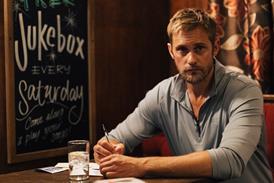Directors Michel Hazanavicius and Luc Besson join campaigns calling for overhaul of France’s famous cultural exception laws taking into account new digital landscape.
France’s top cinema, music and publishing bodies joined forces on Friday in a call for new legislation to help their industries face up to the challenges of the digital revolution.
At the heart of their campaign, bannered “Liberty, Legality, Fraternity”, is a demand for legislation to support a “legal (digital) offering” of films, music and books by French companies in the face of piracy and competition from global Internet giants such as Google and Apple.
“French culture has turned a corner and entered the digital age. A digital ecosystem is developing but it won’t survive without state measures to support it,” Pascal Rogard, head of the Society of Authors and Composers of Dramatic Works (SACD) – France’s equivalent to the Writers Guild of America, told a news conference.
He was joined by the heads of half a dozen other cultural lobbies, including the Association of Authors, Directors and Producers (L’ARP); the Union of Independent Music Producers (Upfi), and the French Publishers Association (SNE) as well as digital players such as Paris-based video sharing site Dailymotion and FilmoTV, Wild Bunch’s curated VOD and SVOD platform.
The group laid six proposals on the table. Key among these was a call for a levelling of the fiscal playing field in France and across Europe.
At present, the services of French VOD and SVOD operators are subject to the full 20.6% VAT rate. This compares with the reduced VAT rate of 7.0% applied to cinema tickets and the 3.0% rate enjoyed by Luxembourg-based Amazon and iTunes, which is currently the third biggest player in France’s VOD market having launched a service aimed at French consumption in May 2010.
“French players are vulnerable in the face of competitors not subject to the same regulation as them,” commented Filmo TV chief Bruno Delecour.
Other demands included an overhaul of the media release chronology. Under current legislation, films can only be made available via VOD four months after their theatrical release and 36 months after on SVOD services.
Bodies such as L’ARP would like to see the SVOD window reduced to 22 months and the VOD gap waived for small independent films with a limited theatrical release to give them more visibility.
Oscar-winning director Michel Hazanavicius highlighted the need to allow smaller films, earlier, legal visibility on the web.
He noted his 1993 comedy La Classe Américaine (American Class) – a montage of old Warner Bros. films cut to tell the tale of “the classiest man in the world”, is only available in a pirated version.
“Due to rights issues, it was only broadcast once on Canal Plus… the film only exists thanks to the Internet… and more precisely thanks to piracy — but clearly if my later 0SS 117 films had been pirated in the same way that would have been a disaster,” he said.
“My point is that there are lots of different types of cinema and economies of production,” he continued. “We can’t apply the same rules across the board. We need to find a way whereby smaller films can benefit from the visibility afforded by the Internet.”
Friday’s press conference came as France’s presidential election campaign ratcheted back into top gear on Friday, after a three-day hiatus following the brutal killings of three Jewish children and a teacher in Toulouse earlier in the week.
With the first round of the presidential vote just a month away, cultural bodies are lobbying hard for the implications of the digital age to be put on the next French president’s cultural agenda.
In a separate initiative also launched last week via the weekly news magazine Le Nouvel Observateur, six high profile producers – comprising Luc Besson, Eric Almayer, Alain Terzian, Patrick Sobelman, Anne-Dominique Toussaint and Marie Masmonteil announced the creation of Le Collectif des 95.
The collective – so called because the three producer unions it represents account for 95% of French production – is also demanding new laws to support French cinema amid the digital revolution.
Its manifesto is more radical. Its demands include that VOD players such as Videofutur, Canalplay, iTunes, Google TV and Amazon, be obliged to pre-finance the films they make available via their platforms, in the same way French broadcasters are obliged to make contributions.
“We’d like Internet players to contribute to the pre-financing of our films, an essential stage of their conception,” commented Masmonteil, co-head of Elzévir Films, which recently produced Radu Mihaileanu’s The Source.
The group also wants a minimum payment of €4.0 to the rights-holders each time a film is screened via VOD and a ban on media players block-buying the rights to screen a film on a number of chains and platforms.
The group acknowledged French cinema, with its 215 million admissions in 2011 and the recent Oscar success of The Artist, was enjoying one of its most successful periods in decades but warned that cultural exception legislation formulated in the broadcasting age needed to be overhauled for the digital age for this to continue.
“We’re acting today because we want to see the doctor before we get too sick. We don’t want to end up like the music industry,” commented Besson.




















No comments yet